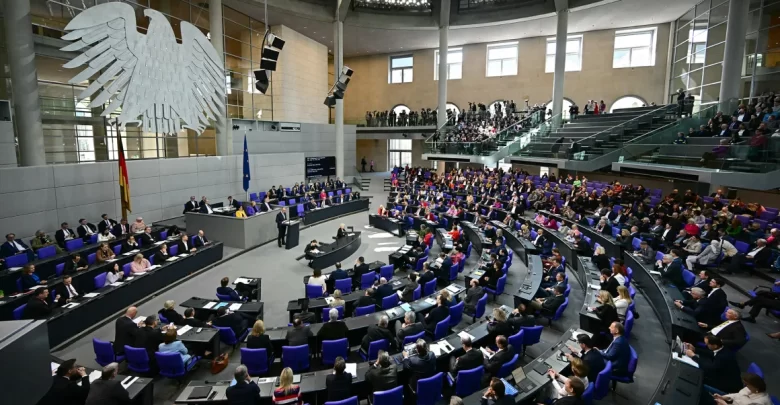BusinessInternational News
Germany’s Merz wins vote to massively expand borrowing and super-charge military spending
Germany’s Merz wins vote to massively expand borrowing and super-charge military spending

The German chancellor-in-waiting, Friedrich Merz, has won a vote in parliament to allow a huge increase in state borrowing that is set to super-charge the country’s military spending. The victory completes a Damascene conversion in German politics – using the outgoing parliamentary arithmetic.
After a week of wrangling with the Greens, who held out for some concessions from Merz on how the money would be spent, the vote in the recalled parliament Tuesday saw him secure the two-thirds majority needed to change Germany’s constitutional “debt brake” – a mechanism to limit government borrowing.
The policy U-turn is Merz’s attempt to achieve a number of goals: generate fresh winds for an economy stuck in the doldrums, super-charge military spending and inject much-needed cash into Germany’s aging infrastructure.
Merz won the vote on the relevant law by 513 to 207. His victory means any defense spending and certain security-related outlays that exceed 1% of gross domestic product will be exempt from the debt brake. It will also enable usually fiscally conservative Germany to create a €500 billion ($545 billion) fund for infrastructure.
Robin Winkler, a senior economist at Deutsche Bank, called the debt overhaul “a historic fiscal regime shift, arguably the largest since German reunification.” But he added that the onus was now on the incoming government to deliver the structural reforms needed to turn the stimulus into sustainable economic growth.
Before the vote, Carsten Brzeski, a senior economist at pan-European bank ING, told CNN that changing Germany’s debt brake would also have implications beyond its borders. “Germany, the guardian of fiscal austerity in Europe, is opening up its wallet,” he said, noting that “this idea of fiscal discipline needed in Europe is quickly fading away.”
The debt brake, enshrined in the constitution, was brought in by Angela Merkel in her first term as German chancellor, back in 2009. Nations across the world were reeling from the global financial crisis, having spent billions bailing out financial institutions.
The German policy was to grow in prominence in the years following the eurozone debt crisis.
“The debt brake was a fantastic instrument to lead by example in Europe: preaching austerity to all the other countries – Greece, Italy and Spain – and at the same time showing that Germany was leading the way with these very restrictive fiscal policies,” Brzeski explained.




